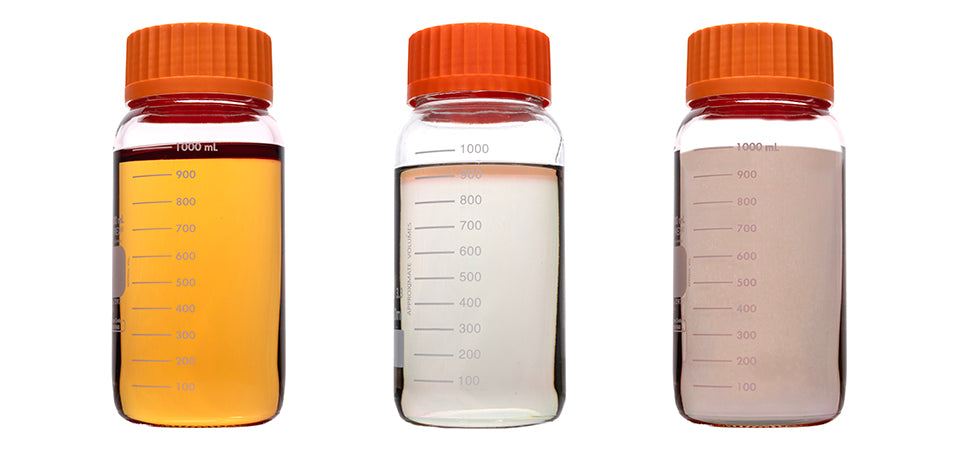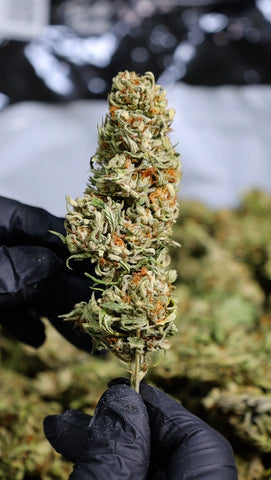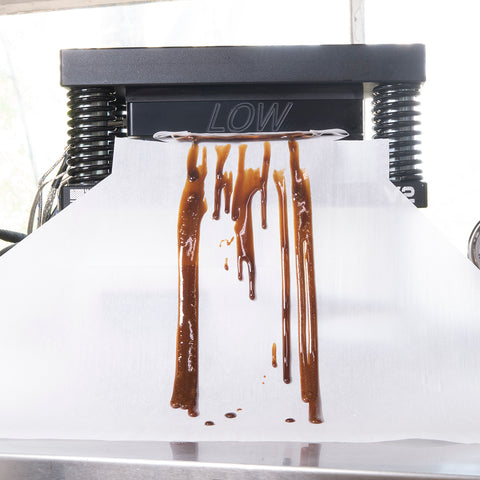Delta 8 vs Delta 9 vs Delta 10

The arrival of "delta-X" variants has made it necessary to be more specific when talking about THC. Delta-9 THC is the main cannabinoid with psychoactive properties that occurs naturally in the cannabis plant. So, what are Delta-8 and Delta-10 THC and how are these three types of THC similar and different?
Chemical Differences between Delta-8, Delta-9, and Delta-10
To understand the chemical differences between the three main types of THC, we first need to understand naming conventions in chemistry.
Greek Letters (the “Delta”)
The Greek letters used in the names of chemical compounds denote the number of the carbon atom to which a functional group is attached. THC has the chemical formula C21H30O2, which means that it has 21 carbon atoms, 30 hydrogen atoms, and 2 oxygen atoms in each molecule. In the THC molecule, the functional group is attached to the fourth carbon atom. That's why there's a "Delta" in the name: Delta is the fourth letter in the Greek alphabet.
Numbers Attached to Greek Letters
The number next to the "Delta" describes the location of the double bond in the carbon chain. In Delta-8 THC, the double bond is located at the 8th carbon atom of the chain. In Delta-9 THC, the double bond is located at the 9th carbon atom of the chain. In Delta-10 THC, the double bond is located at the 10th carbon atom of the chain.
Isomers
Because all three compounds have the same chemical formula but a different arrangement of atoms and different properties, they are known as “isomers.” However, while these isomers have very similar chemical structures, their legal statuses and methods of commercial production set them apart.
Legal Differences Between Marijuana and Hemp

The legal distinction between hemp and cannabis plants (more specifically, marijuana) becomes relevant when we're talking about isomers of THC. According to law, it's the THC percentage that distinguishes hemp from marijuana at the federal level.
In the 2018 Farm Bill, hemp plants were defined as Cannabis sativa with no more than 0.3% THC on a dry-weight basis. Marijuana plants were defined as Cannabis sativa with more than 0.3% THC.
Since this piece of federal legislation legalized "hemp" crops and their derivative products, manufacturers started making THC isomers (Delta-8 and Delta-10) from hemp-derived CBD and selling these products in smoke shops and online.
This has created a legal gray area that some states have clarified by specifically banning Delta-8and/or Delta-10.
Properties, Benefits, and Risks of Delta-8, Delta-9, and Delta-10
Let's take a look at the properties of Delta-8, Delta-9, and Delta-10 THC.
Delta 8 THC
Delta-8 THC occurs naturally in the Cannabis sativa plant in minute amounts. Most of the Delta-8 THC you will find on the market has been produced synthetically from hemp-derived CBD.
Delta-8 is said to have milder psychoactive properties than Delta-9 THC but can still get the consumer high. More specifically, a 1973 study indicates that the relative potency of Delta-8 to Delta-9 is 2:3. People consume Delta-8 THC by smoking or vaping it, taking it as a tincture, or ingesting infused edibles and beverages.
The potential benefits of Delta-8 THC haven't been widely studied. Consumers report taking Delta-8 THC for:
- Chronic pain
- Depression
- Stress
- Panic attacks
- Bipolar disorder
According to a study of comments posted on Reddit, consumers often report a body high and a feeling of clearheadedness after consuming Delta-8 THC.
Delta-9 THC
Delta-9 THC is the most naturally abundant form of THC. It occurs in marijuana plants in percentages ranging from 8% to 34% (be sure to check out our article Does THC Percentage Matter for more about low and high THC percentages). This cannabinoid is classified as a Schedule I controlled substance at the federal level (p. 20 of the linked PDF), along with other tetrahydrocannabinols. However, it has been legalized either medically or recreationally in many states across the United States. Delta-9 THC is typically smoked, vaped, and ingested in edibles and beverages. It can also be taken under the tongue (sublingually) or added to topical products.
Upon ingestion, Delta-9 THC binds to cannabinoid receptors located in the cerebral cortex, cerebellum, and basal ganglia and causes a range of physical and psychoactive effects. Aside from causing the "high" feeling for which marijuana is so famous, THC is commonly used for:
- Lack of appetite
- Chemotherapy-related nausea and vomiting
- Chronic pain
- Obstructive sleep apnea
The U.S. Food & Drug Administration (FDA) has approved a synthetic form of THC—dronabinol—to increase appetite in people with HIV/AIDS and to prevent or treat nausea and vomiting in people who are undergoing chemotherapy.
Marijuana that contains Delta-9 THC can cause a range of side effects, including:
- Disorientation
- Drowsiness
- Fatigue
- Dry mouth and eyes
- Dizziness
- Headaches
- Hallucinations
- Nausea and vomiting
- Increased heart rate
- Increased appetite
Delta-10 THC
Delta-10 THC falls into the same category as Delta-8 THC in terms of its scarce natural occurrence in cannabis plants and widespread manufacture from hemp-derived CBD. There is very little research on Delta-10 THC and most of the information on the web is anecdotal.
People who have tried Delta-10 THC say the high is mellow, energizing, and euphoric. While there is currently no research to back up claims about this cannabinoid's potential medical benefits, it is consumed informally for:
- Anxiety relief
- Stress relief
- A boost in creativity
- A feeling of euphoria
- Improved alertness
- Improved energy
Delta-10 THC is typically consumed via vaping and smoking and can be used to make other kinds of cannabis products like tinctures, edibles, and topicals.
Bonus Isomer: Delta-11 THC
This article focuses on Delta-8, Delta-9, and Delta-10 THC. However, other natural and synthetic cannabinoids exist that are only recently coming into public view.
Delta-11 THC was first synthesized in the 1970sand is now appearing alongside other synthetic cannabinoids in online stores that sell hemp-derived products. There is not a lot of information available yet about Delta-11 THC. However, online vendors claim that it offers similar effects to other THC isomers, namely: relaxation, euphoria, and a mood boost. Vendors also claim that its side effects include drowsiness, dry mouth, and lethargy.
Main Similarities and Differences Between Delta-8, Delta-9, and Delta-10 THC
Delta-8, Delta-9, and Delta-10 THC share several similarities and a few differences:
- Similarities: All of these THC isomers are taken for things like pain relief, mood, sleep, appetite, and euphoria. Furthermore, they are all intoxicating—albeit to different degrees.
- Differences: The main differences between the THC isomers are their legal status, methods of manufacture (only Delta-9 THC can be extracted from cannabis plants in large amounts naturally), and the level of intoxication they induce. Delta-9 THC is said to be the strongest, followed by Delta-8, and then Delta-10.
How to Choose
Consumers reading this may wonder whether one THC isomer is better than the others or whether it's all much of a muchness. The answer depends on your goals and whether you have access to naturally-derived varieties or are looking at synthetic cannabinoids made from hemp. It also depends on the legal status of marijuana and hemp-derived THC products in your state.
When to Choose Delta-8
Delta-8 may be ideal for people who are new to cannabis or only want a mild high. It's also said to be good for evening use when you need to wind down for sleep.
When to Choose Delta-9
Delta-9 may be best for people who want to consume THC for its medical benefits and for those who want a stronger high. Delta-9 THC is also more likely to be naturally produced (as opposed to synthetically produced) and will be more accessible in states that have legalized marijuana and banned synthetic cannabinoids like Delta-8 and Delta-10.
When to Choose Delta-10
Delta-10 THC is described as being milder than both Delta-8 and Delta-9 THC. That makes it especially suited to beginners and people who want to relax without necessarily being locked to the couch. Delta-10 is also said to be uplifting and energizing, which could be attractive for people who struggle with lethargy or fatigue.
Safety Tips

When you're buying any kind of THC for personal use or to use in a commercial cannabis product, it's essential to buy it from a reputable source and to check the certificate of analysis. This will tell you which cannabinoids the extract contains and confirm that it's free from mold, heavy metals, and pesticides.
It's also essential to know your local laws regarding the different kinds of THC. Some states allow hemp-derived cannabinoids but not Delta-9 THC, some are just the opposite, and some ban the possession, sale, and consumption of all types of THC.
Same, Same, But Different
The THC family includes several isomers—all of which differ only in the location of a double bond. However, differences in how these cannabinoids occur in nature and how they are extracted (or manufactured) place them in entirely different legal categories.
If you are interested in trying Delta-8, Delta-9, or Delta-10 out of curiosity or are looking for new marketable product ideas, it's essential to check your local laws and ensure that you only work with lab-tested products and extracts. As long as the products you're dealing with are high-quality, legal, and safety-tested, you can go ahead and experiment to your heart's content!



